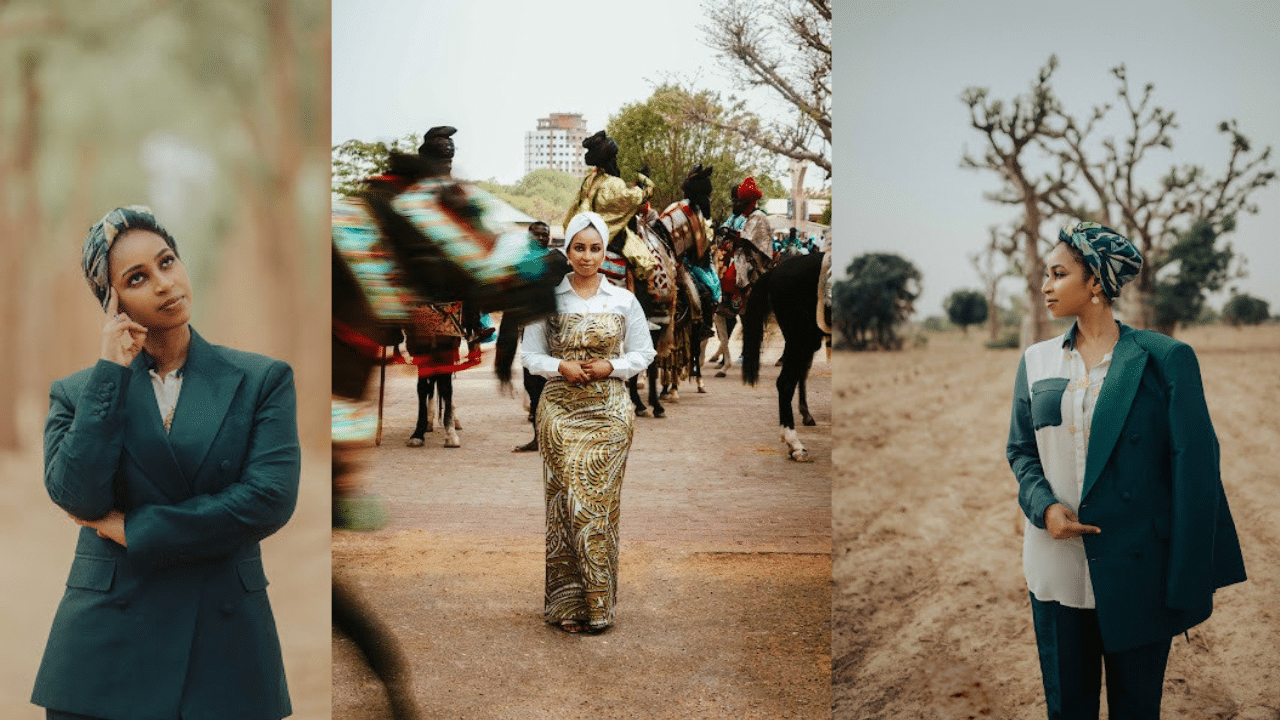Eco-luxury brand RAW Beauty draws its inspiration from the transitional nature of the African Sahel. Founder Ruqayya Tofa-Basheer says her own personal skin challenges led her to this line of work.
Clean beauty is on the rise. According to researchandmarkets.com, the worldwide clean beauty industry is expected to reach $14.36 billion by 2028. Defined as beauty products that are non-toxic and free of harmful ingredients, clean beauty has gained popularity, especially with Gen Z and millennials. A January 2023 article by The New York Times stated that ‘clean beauty’ had “5.6 million hashtag views on Instagram and 1.2 billion on TikTok”.
For beauty entrepreneur Ruqayya Tofa-Basheer, clean beauty offered a lifesaving solution for her and her daughter’s skin problems, and that led to the creation of one of her luxury botanical, clean beauty brands. RAW Beauty Africa focuses on sourcing and using African ingredients as its base for products.
“We use plants like moringa, baobab, hibiscus, and we use water melon seed oil, pumpkin seed oil and extracts from different plants in Africa that have high anti-oxidants and anti-inflammatory properties. We started with body products but now, we deal with face products for acne, and hyperpigmentation also came into play where a lot of people had scars from eczema that they couldn’t get rid of easily,” says Tofa-Basheer.
Her original career dream was architecture. After studying at the University of East London’s School of Architecture, Computing and Engineering, Tofa-Basheer worked with Barron and Smith Architects in Islington, London, from 2005 to 2007, before returning to Nigeria.
Over the years, she had been plagued with a skin condition which proved too difficult to handle.
“Going into beauty was really about my own personal journey with my skin. Having suffered from eczema as a baby, I had a very bad skin condition. I remember in boarding school, I was really not confident at all. During summertime, we were all going for a swim and I wanted to get out of that because I used to have a lot of boils on my body, especially during the rainy season,” Tofa-Basheer recalls.
“I remember my parents taking me to different dermatologists and I never really got a product that worked for me. When I was 19, I came across an aesthetician and she prescribed something that was way too harsh because I had sensitive skin as well, and it ended up really drying up my skin. That is really when I started trying to educate myself about clean ingredients and clean beauty.”
During her first pregnancy, Tofa-Basheer decided to take a beauty and skincare course in hopes of creating her own solution for her skin. However, it was after her pregnancy that her eureka moment happened.
“When I gave birth to my daughter, I found out she had the same skin condition as me. And I sought out companies in the US to help… I was like with all the courses I have done, I need to just order products and get to work. And that is when I created my skin butter and literally, within a week, her skin cleared,” she adds.
And Tofa-Basheer has never looked back. She started researching about the healing properties of local plants as well as different oils and began mixing clean concoctions in her kitchen before expanding to a factory in Kano and, most recently, another location in Abuja.
The brand has experienced organic growth for the past two years with its unique luxury packaging as well as brand proposition which seeks to also educate its customers about the negative impact of skin bleaching, amongst others.
For African beauty entrepreneurs that would like to tap into this billion-dollar clean beauty industry, Tofa-Basheer believes the focus should be on looking inwards first.
“Try to spread out and delve more into our natural plant resources and don’t get pigeonholed into just using shea oil and coconut oil but rather spread out and use research to process and manufacture ingredients, rather than just making products,” she says.
“Look locally for your solutions and try to solve a problem that is personal to you and your community.”
